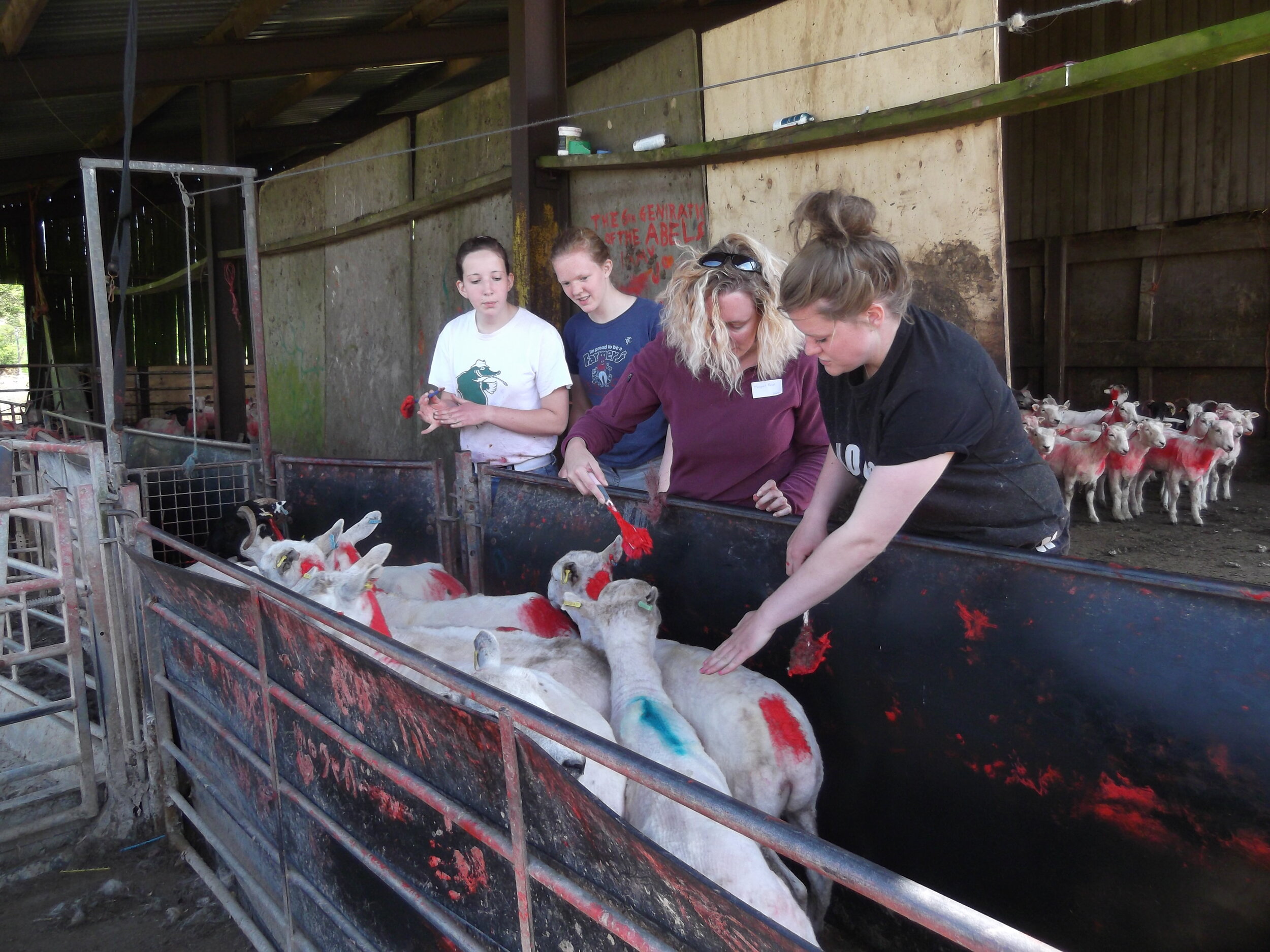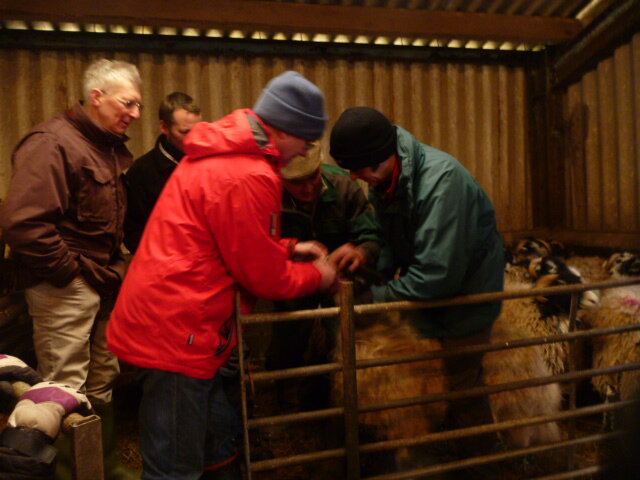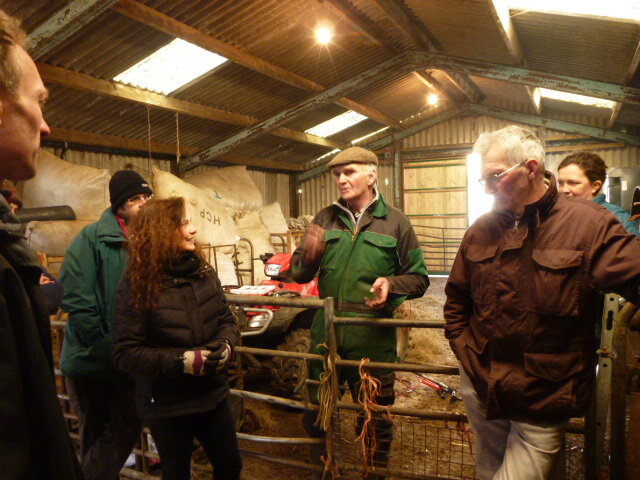This project is now complete and we have been delighted with the response of conservation organisations to this training opportunity.
What did we do?
Hill farmers in Cumbria and Dartmoor have delivered 19 training sessions on their farms for 124 people working for Natural England, Defra, RPA, RSPB, Wildlife Trusts, National Park staff and other conservation NGOs who attended at least one of the following sessions:
An introduction to hill farming systems to cover the hill farm, the hill farming calendar, sheep and suckler cow management, grass and forage, the stratified sheep system and includes practical livestock tasks
Common Land management to include the importance of common land to sheep production on hill farm enterprises, legal rights and responsibilities and the governance of common land, agri-environment schemes and internal management agreements, culture, traditions and cooperative working
Hill Farm Business Economics a specialised course to provide insights into hill farming business
How did it go?
We are currently working with external evaluators from CCRI, University of Gloucester. Although, the analysis is not finalised they have supplied much of the information for this section of the report.
Disconnect with the countryside?
There is evidence of a lack of understanding of hill farming practice among a significant number of the conservation professionals attending the courses.
“I think it’s important that professional people in the industry understand hill farming better. Talking to them, just on a day to day basis when they visit the farm, it worried me slightly how little they understood about hill farming and the big decisions they make on our lives really” Farmer trainer A
“There's a major disconnect between farmers and the regulatory bodies of varying descriptions” Farmer trainer B
A few of the participants on the training courses had a background in farming, but the majority had joined the conservation profession with alternative histories. They said they wanted a greater understanding of hill farming as this would help them communicate and relate better with farmers, as well as understanding the implications of agri-environment schemes (AES) to the farming business. Some felt they already had a strong knowledge of hill farming systems and were attending the courses to learn specific facts, network with others, and/or were in a managerial role and wanted to see how the training was delivered. Whilst others acknowledged their understanding of hill farming was weak prior to the courses.
“It just made that connection. You can read things in a book, be told about them or learn them, but actually having that hands on experience and doing it yourself just makes the realisation and the connection happen” Participant
“getting as good an understanding as possible of their perspective and how they go about their day to day business; It’s key really to understanding how we can draw up things which work for everybody” Participant.
Interestingly the farmer trainers noted that there was a wide range of knowledge levels among the participants and rated their real (i.e. practical rather than theoretical) knowledge of hill farming as generally rather low and some had little or no understanding of hill farming at all.
From analysis of participant responses, it was clear that the participants learnt a great deal about the nature of hill farming. The hill farming calendar and an understanding of the economics of hill farming were both mentioned regularly. All the farmer trainers felt that participant’s knowledge improved over the courses. From the evaluation, three key characteristics to the success of the programme were identified;
The learning environment - training being held on farms, in an unofficial, relaxed and inviting atmosphere.
The delivery - farmer trainers were perceived to be open and honest, particularly with reference to financial data.
The flexibility - the opportunity to ask any questions, and participate in discussion.
The learning environment could be seen as particularly relevant to increasing the connectedness of participants with the countryside. A number mentioned that the training simply wouldn’t be the same if it was held elsewhere.
Both participants and farmers alluded to how the official nature of usual meetings can prevent communication. An overarching theme emerged that programmes with such characteristics as the Hill Farming Training courses are important for the development of understanding, empathy, relationships and constructive debate between all bodies involved in uplands management.
What happens next?
As a result of the value of the training being recognised we are now charging to deliver hill farming training courses. We have contracts with Defra and Natural England to run 6 courses this year. The Defra courses are targeted at people working in London while the Natural England courses are targeted at project officers.
If you are interested in hill farming training for your organisation or would like to come on a training course please contact us through the website.
Thank you
We would like to say a big thank you to our farmer trainers, Veronica and Sandra our facilitators, the other farmers who joined us for sessions, the speakers , the participants and our funders the Princes' Countryside Fund, Fells and Dales RDPE



